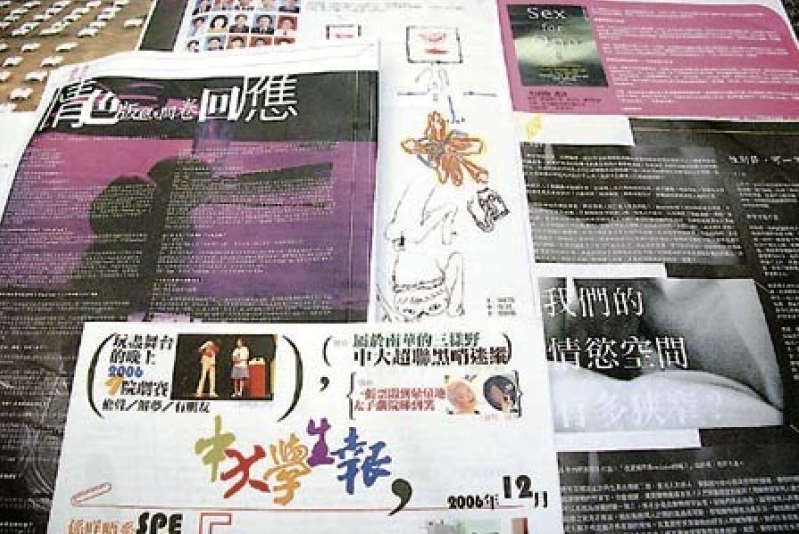
On Oct. 21, Hong Kong Superior Court issued a verdict that repeals the Obscene Articles Tribunal’s judgment on the sex page of Chinese University Student Press’s publication as level II – indecent, because it said that the tribunal did not abide by the guidelines in making the relevant ratings. Furthermore, it shall exempt the publication from reexamination by the tribunal.
In the judges’ verdict, the Obscene Articles Tribunal has made only a general review on the publication in the screening; it did not clearly point out which part of the sex page of CUSP’s publication is indecent; it did not follow the guideline of the law; it also criticized the tribunal as arbitrary and careless.
Undersecretary of Commerce and Economic Development Bureau Gregory So said that he will study the verdict, but has not decided whether to appeal or not.
In the CUSP’s questionnaire of the February and March 2007 volume included two questions involve taboo subject such as "human-animal sex" and incest, and was ruled indecent by the Obscene Articles Tribunal after receiving 200 complaints. Then, a number of print media received complaints from several priests and readers, condemning the CUSP's publication for its "immoral" content. More print and online media began reporting on this issue and it escalated the issue by releasing critiques on their editorial sections. While the media were flooded with calls from complainers, the government’s Television and Entertainment Licensing Authority began to receive a number of complaints about the publication. In meeting the demand from the society, the government officials passed the concerned publication to the Panel of Adjudicators of the Obscene Articles for judgment.
On May 10th, the university's discipline board held a meeting. After that, the Acting Registrar issued a warning letter to all the 12 members of the CUSP. Letter stated that CUSP's publication contained obscene or indecent content. It requested CUSP stopped publishing and distributing the publication.
On May 12th, newspapers reported that The Obscene Articles Tribunal initially determined the sex page of CUSP's publication as Class II - indecent. Public attack CUSP and urge CUSP publisher would compromise with school.
The student vow to fight this ruling. And it has been in the process of appealing the decision until the latest verdict from the judge repealing the Tribunal’s rule in 2007.
Upon the publishing of CUSP’s sex page, Singtao Daily newspaper criticized CUSP for condoning irregular sex acts that seeks for self-gratification and breaking of taboos, but completely neglecting the consequences resulted from sex-related issues which have become a prevalent part of the internet sex culture. With the recent increase of college students secretly taking pictures of the underwear of the girls wearing skirts, this issue also arises from seeking for self-fulfillment but neglecting the fundamental dignity of others.






